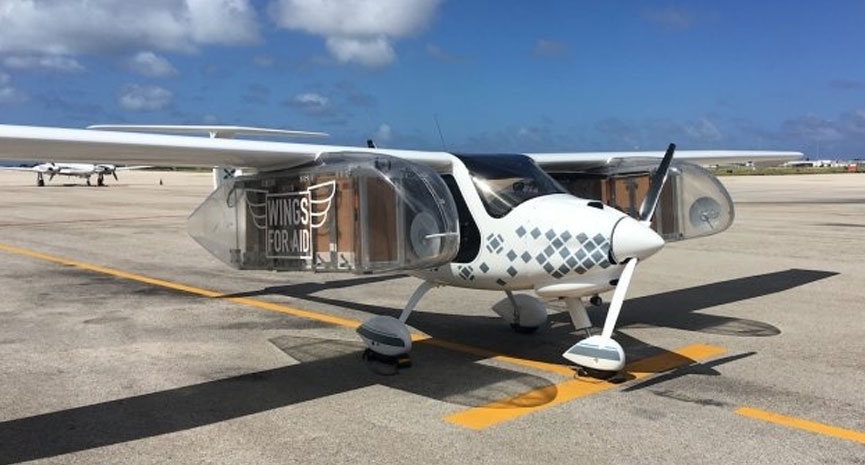Wings For Aid's world tour to lead to Africa
In an attempt to bridge the ‘last-mile’, The Dutch start-up, Wings For Aid, is designing self-landing delivery boxes that could be delivered using unmanned aircraft. The tour is scheduled to lead to Africa after starting off in the Caribbean with a demonstration flight over the Wacawa military ground in Curaçao.

January 25, 2020: In an attempt to bridge the %u2018last-mile', The Dutch start-up, Wings For Aid, is designing self-landing delivery boxes that could be delivered using unmanned aircraft. The tour is scheduled to lead to Africa after starting off in the Caribbean with a demonstration flight over the Wacawa military ground in Curaao. In Africa, the company will be participating in the African Drone Forum from February 5 - 7 in Rwanda, demonstrating the delivery system. The tour will give the company insights on the prevailing challenges for each region and inform the best implementations.
The organisation commenced its world tour with a demonstration flight to inform its global stakeholders and to test-drive operational procedures. Wings For Aid also plans to introduce a new remotely piloted aircraft with increased payload capacity.
"We are building up our international network to become a cargo drone airline for emergency aid logistics. With our system, we can provide thousands of people in need of food, water or any other life-saving supplies. Humanitarian actors can use our service when other means of transport are not available, too expensive or too dangerous. During the world tour we want to demonstrate our work and show the logistical impact of our system", said Barry Koperberg, founder of Wings For Aid.
To understand the situation in the different countries and to spread the word about the system to the relevant stakeholders, Wings For Aid will attend various forums, exhibitions and conferences worldwide targeting specifically the areas demanding the greatest need.
The Dutch organization will become fully operational in 2020 and introduce a new remotely piloted aircraft in mid-2020, which will increase the number of boxes carried per drone from six to eight. One aircraft can carry 160 kg of payload and drop the carton boxes with pin-point accuracy bridging distances up to 250 km. The boxes are designed to land upright and absorb the impact to sustain content integrity.
Wings For Aid has chosen Rhenus Air & Ocean as its official logistics partner. Rhenus supports Wings For Aid globally in getting the delivery system to the areas in need as quickly and efficiently as possible, including the world tour. Both parties signed a cooperation agreement in July 2019.
In short, Wings For Aid developed a strategy to make micro-distribution scalable, anywhere and at any time. An estimated 20 percent of 100 million people in need of emergency aid can't be reached. One of the main reasons is the current impossibility to bridge %u2018the last mile'. The self-landing delivery boxes, transported by remotely piloted aircraft, are made out of biodegradable cardboard and can, therefore, be mass-produced at affordable prices. Moreover, there is no environmental impact in the field while the box can also be used for heating or insulation after the drop. Also considering the social impact, this achievement was recently honoured with the Sustainability Award of The International Air Cargo Association.


